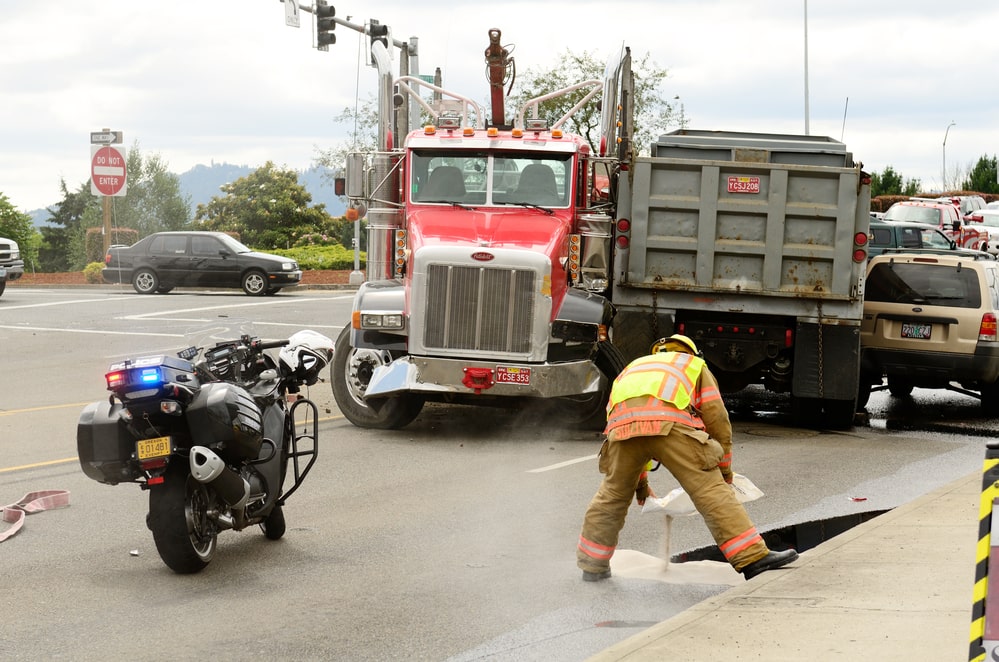Network Of Independent Truck Accident Attorneys
Georgia Truck Accident Laws
100% Committed To Maximizing Your Recovery
How Truck Accident Laws Differ From Car Accident Laws

Truck accidents are often more complex than regular car accidents due to the size, weight, and unique regulations governing commercial vehicles. In states like Georgia, Truck Accident Laws Georgia outline specific rules for truck drivers and companies that differ significantly from standard car accident laws. Understanding these distinctions is essential for anyone involved in a truck accident, as the consequences are usually more severe.
1. Regulation Differences: Federal Vs. State Laws
One of the key differences between truck and car accidents lies in the regulatory framework. Car accidents are mainly governed by state traffic laws, while truck accidents involve both state and federal regulations. The Federal Motor Carrier Safety Administration (FMCSA) sets national standards for the trucking industry, covering aspects like driver hours of service, vehicle maintenance, and cargo loading.
For instance, truck drivers must follow strict hours of service rules to prevent fatigue. If a driver violates these federal guidelines, the trucking company or driver may be held liable for an accident. Car accidents, in contrast, do not involve this additional layer of federal oversight, making truck accident cases more complex.
For more information on the differences between federal and state regulations governing trucks versus cars, including safety inspections and driver requirements in Georgia, you can visit the Georgia Department of Public Safety’s Motor Carrier Compliance Division.
2. Higher Stakes In Damage And Injury
Truck accidents typically result in more significant damage and severe injuries compared to car accidents. A fully loaded truck can weigh up to 80,000 pounds, while the average car weighs around 3,000 pounds. This massive size difference leads to catastrophic consequences in truck collisions, often resulting in serious injuries or fatalities.
Due to the higher stakes, truck accident claims usually involve larger compensation amounts, covering medical bills, property damage, lost wages, and non-economic damages like pain and suffering. Car accident claims, on the other hand, are generally less complex and involve lower compensation amounts.
3. Liability In Truck Accidents
Liability in truck accidents is more complicated than in car accidents. In a car accident, responsibility typically falls on one of the drivers involved. However, in truck accidents, several parties may be held accountable, including:
- Truck drivers for negligent driving
- Trucking companies for failing to maintain the vehicle or pressuring drivers to meet unsafe deadlines
- Manufacturers for producing defective parts
- Cargo loaders for improperly loading the truck
To prove liability, investigators often review logbooks, maintenance records, and black box data. This thorough investigation is not usually required in car accident cases, making truck accident claims more intricate.
4. Insurance Coverage
Another critical difference lies in insurance coverage. Commercial trucks are required to carry significantly higher insurance limits than passenger vehicles. Trucks carrying hazardous materials, for example, may need to hold up to $5 million in insurance, while the average car insurance policy in Georgia may only require $25,000 in bodily injury coverage.
This difference in insurance requirements means that truck accident cases often result in larger settlements. However, dealing with trucking companies and their insurers, who are often well-equipped with legal teams, makes pursuing a claim more challenging than in standard car accident cases.
Legal Guide
Truck accidents differ from car accidents in terms of regulations, liability, and the magnitude of potential damage. Navigating these complexities requires specialized legal expertise. If you or a loved one has been involved in a truck accident, the legal professionals at Truck Law can help guide you through the process and ensure you receive the compensation you deserve. Contact Truck Law today for expert advice and representation.